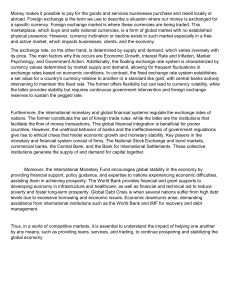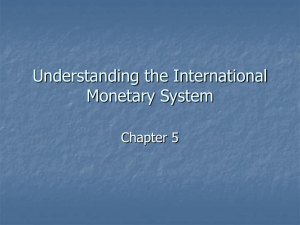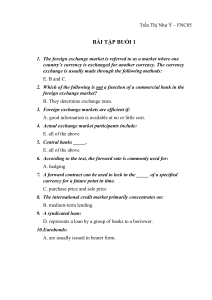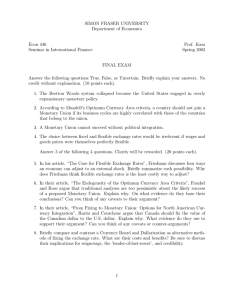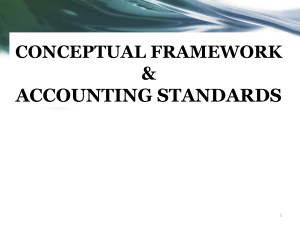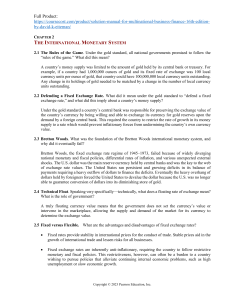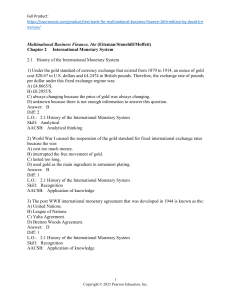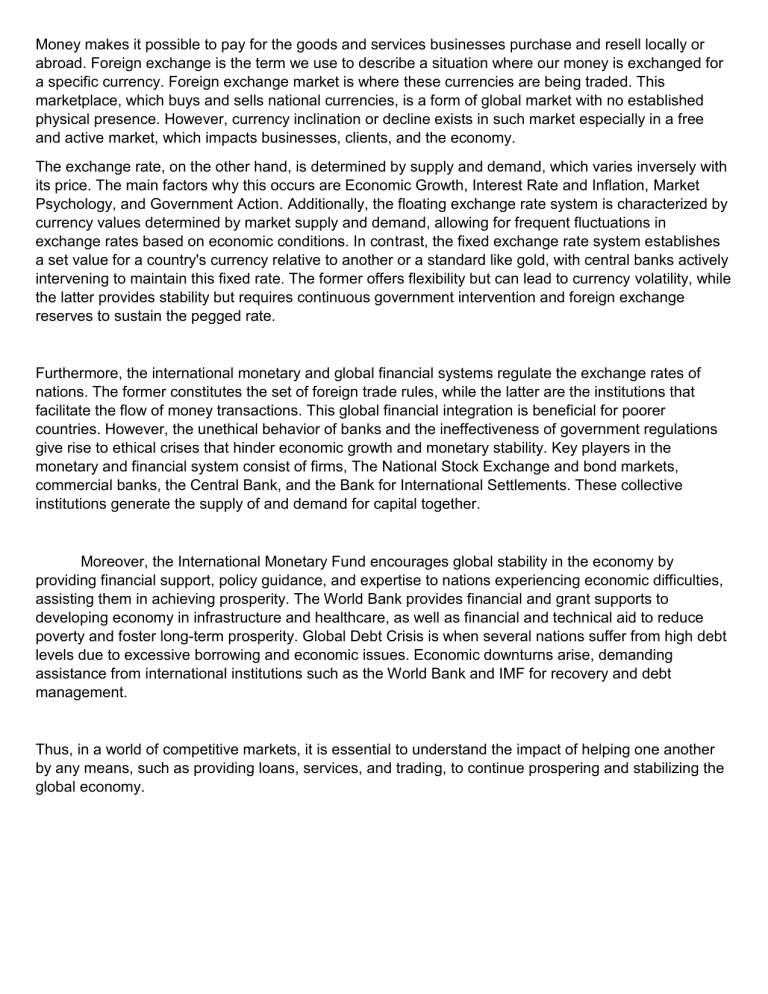
Money makes it possible to pay for the goods and services businesses purchase and resell locally or abroad. Foreign exchange is the term we use to describe a situation where our money is exchanged for a specific currency. Foreign exchange market is where these currencies are being traded. This marketplace, which buys and sells national currencies, is a form of global market with no established physical presence. However, currency inclination or decline exists in such market especially in a free and active market, which impacts businesses, clients, and the economy. The exchange rate, on the other hand, is determined by supply and demand, which varies inversely with its price. The main factors why this occurs are Economic Growth, Interest Rate and Inflation, Market Psychology, and Government Action. Additionally, the floating exchange rate system is characterized by currency values determined by market supply and demand, allowing for frequent fluctuations in exchange rates based on economic conditions. In contrast, the fixed exchange rate system establishes a set value for a country's currency relative to another or a standard like gold, with central banks actively intervening to maintain this fixed rate. The former offers flexibility but can lead to currency volatility, while the latter provides stability but requires continuous government intervention and foreign exchange reserves to sustain the pegged rate. Furthermore, the international monetary and global financial systems regulate the exchange rates of nations. The former constitutes the set of foreign trade rules, while the latter are the institutions that facilitate the flow of money transactions. This global financial integration is beneficial for poorer countries. However, the unethical behavior of banks and the ineffectiveness of government regulations give rise to ethical crises that hinder economic growth and monetary stability. Key players in the monetary and financial system consist of firms, The National Stock Exchange and bond markets, commercial banks, the Central Bank, and the Bank for International Settlements. These collective institutions generate the supply of and demand for capital together. Moreover, the International Monetary Fund encourages global stability in the economy by providing financial support, policy guidance, and expertise to nations experiencing economic difficulties, assisting them in achieving prosperity. The World Bank provides financial and grant supports to developing economy in infrastructure and healthcare, as well as financial and technical aid to reduce poverty and foster long-term prosperity. Global Debt Crisis is when several nations suffer from high debt levels due to excessive borrowing and economic issues. Economic downturns arise, demanding assistance from international institutions such as the World Bank and IMF for recovery and debt management. Thus, in a world of competitive markets, it is essential to understand the impact of helping one another by any means, such as providing loans, services, and trading, to continue prospering and stabilizing the global economy.
